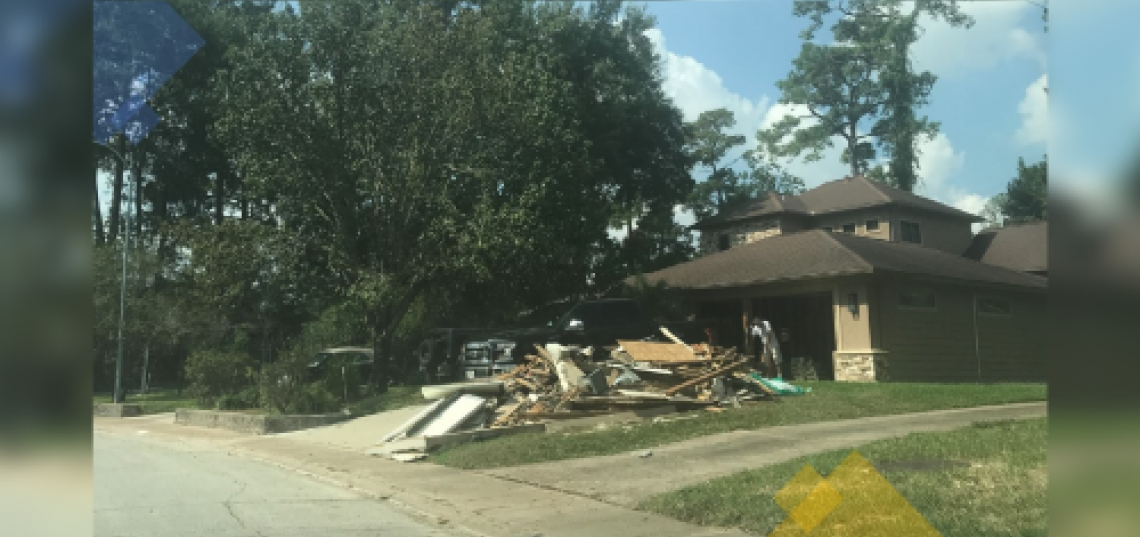
Nonprofit organizations whose employees were able to utilize their social networks in addition to traditional work-related communication were better prepared to serve vulnerable clients immediately after Hurricane Harvey in 2017, according to a recently published study in Nonprofit and Voluntary Sector Quarterly. The research, conducted by Rutgers University’s NetSCI Lab members Minkyung Kim, Melanie Kwestel, Hyunsook Youn, Justine Quow, and Marya Doerfel at the School of Communication and Information found that organizations, their managers, and employees were better able to mobilize and continue providing critical social services when they both followed established communication protocols and used their personal and organizational networks to share information, acquire resources, and collaborate with other agencies on behalf of clients.
“Disasters like Hurricane Harvey disrupt the business and social interactions that we take for granted in our everyday lives, and that impacts the ability of organizations to get back to work,” explained Dr. Doerfel, a professor of communication and collaborator in the NetSCI Lab who studies the impact of social network relationships on organizational resilience. “We tend to think of disaster planning in terms of establishing lines of communication within a given organization, for example, tasking managers with specific portions of business recovery. But this study showed that communication with people outside one’s organization, the people we know from our communities, our social and religious groups, and even our families, helps organizations get back to work faster.”
The study looked at two Houston area faith-based networks of social welfare organizations serving clients who are homeless, food insecure, unemployed or underemployed, or aged during the year immediately following Hurricane Harvey. As expected, organizations in the network reached out to established partners like FEMA, the American Red Cross, and municipal agencies for assistance after the hurricane. These resource-providing organizations were vital. But recovery was further bolstered by connections between people in the organizations and their other contacts. These social networks fostered new relationships among organizations not previously linked and served as conduits for the millions of dollars of financial assistance, materials, and manpower needed to rebuild Houston in the months following Harvey. For example, an organization with a surplus of volunteers to clear houses of muck was able to send them to other organizations to assist their clients. In another instance, the personal connection of a CERT (Community Emergency Response Team) member to someone in their congregation provided a link to a national organization that sent mental health counselors to Houston. Personal networks helped make bureaucratic organizations more accessible and effective.
“Throughout our interviews with managers and staff, we found that these informal networks were commonly used to help clients in crisis. One manager called it ‘the handshake relationship where someone picks up the phone,’” said Ms. Kim, the lead author of the NVSQ article and a doctoral candidate at Rutgers. These networks expanded after the hurricane. When a CERT volunteer who usually works with two others on a team discovered that the teammates’ houses were flooded, she enlisted her two sons to lead response efforts to track victims and match them with appropriate volunteers.
“Unfortunately, we discovered that the opposite was true as well,” continued Kim. “The more isolated someone was within the larger network, the slower the recovery. We interviewed a manager of a senior meals program whose agency was still hobbled months later.” That organization, Kim explained, lacked personal connections that could have sped up access to the resources her organization desperately needed.
The data collected for the study are part of a larger field study of organizational resilience funded by the National Science Foundation (award #1760512). Members of the NetSCI Hurricane Harvey team are continuing their analyses to determine the role that communication practices play in enabling organizations to be transformative and/or return to previous functions, learn from disaster experiences and the dark side of resilience, and prepare for future business disruptions.
Please visit: https://doi.org/10.1177/08997640211013912 for the full article.
Full citation:
Minkyung Kim, Melanie Kwestel, Hyunsook Youn, Justine Quow, & Marya L. Doerfel (2021). Serving the vulnerable while being vulnerable: Organizing resilience in a social welfare sector. Nonprofit and Voluntary Sector Quarterly. Doi: 10.1177/08997640211013912.
Image: Courtesy of Marya Doerfel
